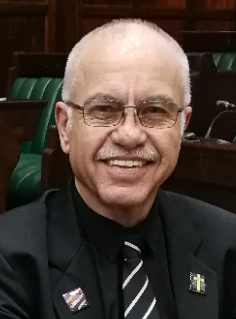FERRIER INTERNATIONAL thanks Cees Bruggemans, Chief Economist of FNB for this article which we share with you.
***************************

| The future of Euro and Rand |
 |
| By Cees Bruggemans, Chief Economist FNB |
| 10 August 2010 |
 |
|
Nobody has any doubt about leading national currencies. The Dollar, Yen, Sterling, Yuan, Rand will continue to exist for the time being.
But the Euro? If so, at what level? If not, what next?
Europe as a concept is incomplete. And that makes for various possibilities.
For South African exporters with a third of manufactured exports, much agricultural and mining exports still going there, this creates specific risk.
What exchange rate is one to assume? Here one needs as much to understand where Europe is heading, as where South Africa will find itself. This isn’t necessarily the same thing.
First Europe.
There is technical analysis. And there is a political one. Reality may be superimposed on both.
When the fiscal sustainability of countries becomes doubtful, financial markets at first reduce their willingness to fund sovereigns (pushing up the yield demanded, discounting growing risk) and ultimately refuse to fund (forcing debt default if nothing intervenes).
In the case of 2010, Greece went effectively into default, Portugal was to be next, and we can argue about Spain and Ireland.
Countries such as the UK were on the watchlist (remembering Willem Buiter’s crack two years ago of potentially facing a Reykjavik-on-the-Thames, making the comparison with bankrupt Icelandic banks pulling that country over the edge).
Governments of countries such as Portugal were close to going unnecessarily into default this year, because the markets were no longer prepared to give them time to fiscally retrench and turn around their finances, even if in principle they should be able to get out of their problems this way.
Europe’s governments intervened at the 11th hour by launching a €750bn Eurozone lifeboat, in addition to the already announced €110bn package for Greece.
Thus Greece was from May 2010 no longer dependent on private funding, and such public support was from then also available to other qualifying Europeans.
Even so, to be successful the loan facility cannot become a subsidized rescue for countries in trouble, but instead should merely offer insurance against unwarranted speculative market attacks.
For this reason the offered loan facility needs teeth. If a country doesn’t fiscally retrench, reducing its budget deficits and arresting its debt spiral, the penalties need to be harsh.
Thus the real test still lies ahead. And Greece will be its first real testing ground.
There are many observers who don’t believe that Greece can stay the course with its fiscal retrenchment, fully meeting the imposed conditions. If Greek retrenchment fatigue were to surface, possibly within two years, even before the offered lifeline has been fully utilized, something else will come into focus.
It is quite clear at present that the richer Europeans are in no mood to bail out the Greeks (or anyone else) at all costs, for there is an alternative.
But because a drastic change will be costly for all, the richer countries will first try to see whether any real bite can still convince the struggling countries to yet make even bigger efforts to get finances under control.
The likes of Germany, Holland and others will by then make very clear to the likes of Greece that the loan facility isn’t a subsidy, only an insurance policy.
Greece will then have to ensure its own redemption by making all the necessary adjustments, meaning low budget deficit, high primary surplus, eventually falling debt levels, supply side reforms and resumption of growth.
If all that doesn’t work out (and not only with Greece), there may eventually be a parting of the ways after much argument on a five year or more time horizon (Europeans tending to take their time settling an argument).
If the weaker countries don’t voluntarily want to exit the Euro (they won’t, for the asymmetric costs facing them are very high), the richer countries may well decide at some point to step out together and create a new club of more naturally associated countries.
A Super Euro could then well result, leaving the poorer cousins with an Inferior Euro, or fragmenting back into national currencies.
The next five years are therefore not likely to be short of Greek drama or European risk.
Financial markets will want to discount likely outcomes, and given country strains over the period this may from time to time weigh on the Euro. Any successes should obviously buoy the Euro.
Only when (if) the rich club of Europeans gets reconstituted, with its own new currency, can that Super Euro expect to soar. On the other hand, the old Rump Euro would devalue heavily.
So the European Project in which France politically anchors Germany and keeps it contained, with the smaller countries all aspiring to be inside the tent in order to escape currency volatility and benefit from the low anchor risk and its low interest rates, may yet fragment along predictably fault lines.
But then it may not if they all hang together, if with considerable effort, the Euro surviving, again becoming successful and accepted as such.
This brings a yet bigger picture into focus.
———–
Dominique de Villepin, a previous French Prime Minister (and on occasion described as a modern Talleyrand), today heavily in Gaullist mode, puts it rather succinctly.
“We in Europe often don’t seem to understand this, but the times we live through are beginning to look like some of the most dramatic periods in our common history.
In Europe we are facing a historic challenge. After four or five centuries of Western dominance, one finds today Europe’s place in the global order being questioned.
It is exciting to pick up that glove, economically but also culturally and politically.
Culturally, it is a matter of whether we can organize international solidarity on a planet-wide scale. Whether we can create global organizational formats.
The United States only the other day claimed it cannot alone solve the world’s problems. That’s realistic.
We must discuss worldwide about the values that unite us. What do human rights mean in the new multi-polar world? What do freedom and justice mean?
Among ordinary Europeans there is a great restlessness because people cannot see what the future should look like. There has been a remarkable change. Everywhere in Europe but also in the US, people are uncertain and are asking questions about what comes next. There is a general feeling of powerlessness.
This in contrast to what you see when visiting Latin America, China, India, even the Middle East and Africa, where you encounter a formidable optimism.
There they sense that history is changing direction. The feeling that what yesterday was still impossible may now be coming within reach.
Nothing has been lost so far. We must start thinking about our future. Difficult, because it won’t stay the way it now is or was. The easy centuries lie behind us. The solutions are not obvious. We need to reinvent economics and politics.”
————
These are overarching political sentiments, much more complex than the simple technical nuts and bolts of monetary (and fiscal) union.
Both at the technical level, but also at the highest political level, no different from the past 60 years, Europe must continue to look for structures that suit its complex personality best.
My sense is that the Eurozone won’t splinter and that the Euro won’t fragment into different currencies and groupings. But delivering that will require much sacrifice from the weaker countries and much demanding oversight from the richer ones.
Financial markets will ascribe a higher risk premium to the entire European project (the Euro) than before as well as individual countries (via their government bonds). With such a more realistic sense of structural shortcomings guiding markets, one would expect the Euro to underperform against better performing economies in the global periphery (emerging and commodity producing especially).
Alongside a United States also structurally struggling to get its house in order, the two largest currencies in the world may well be weighted down even once they start eventually ‘normalising’ their interest rate levels back to higher levels.
This spells Rand strength, at least firmness, rather than weakness, potentially for many years.
Secondly the Rand
Will South Africa continue with conservative macro policies, pursuing stability? Or will there be more policy adventure, regarding greater intervention in favour of a weaker Rand?
The former condition (continuing with the status quo) may reinforce the global tendencies, underwriting a yet stronger Rand than the 7:$ and 9.50:€ currently staring us in the face, at least for the time being.
In contrast, any political and/or policy detours may succeed in somehow undermining the Rand, the extent of which would be a function of the radicalism with which alternative policies are pursued and/or the financial markets eventually decide to punish us by withholding global capital as our risk profile deteriorates unacceptably.
These thoughts don’t yield nice clean Rand/Euro exchange numbers for the next ten years. Instead, they should install a healthy sense of risk, regarding upside (for now) and downside (whenever).
It will all depend on circumstances of which the European angle, despite its complexity, may be the least uncertain relative to any political or policy adventures we may still instigate ourselves.
Excellent cases can be made for common sense to prevail, as much in Europe as here, making for a least damaged Rand. But it isn’t the only potential future on call.
That makes it very, very difficult to be believably specific about the Rand/Euro these next ten years.
References
Rene Moerland, “Oud-Premier Dominique de Villepin – Europa is bezig zichzelf van de kaart te wissen”, NRC Handelsblad 7 Juni 2010
Justin Marozzi, “The man who invented history – travels with Herodotus”, John Murray Publishers 2008
Cees Bruggemans is Chief Economist of First National Bank. Register for his free e-mail articles on www.fnb.co.za/economics |
 |
FERRIER INTERNATIONAL sharing the news with you.






